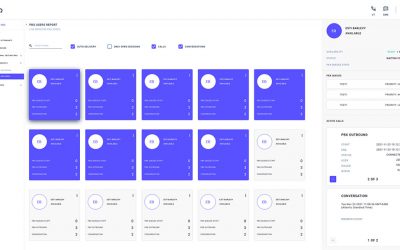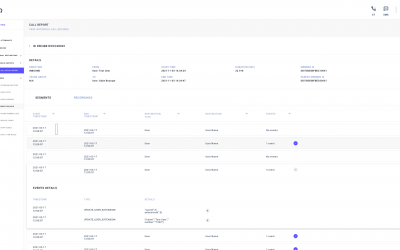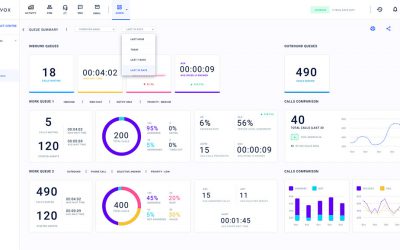Contact centers are known for their fast-paced and high-pressure environments, where employees frequently deal with intense workloads and tight deadlines. Yet, creating positive work culture is still possible in these demanding settings, boosting employee satisfaction, lowering turnover, and improving overall performance. In this article, we’ll explore practical strategies for creating positive work culture in high-pressure environments like contact centers.
1. Prioritize Employee Well-being
High-pressure environments can take a toll on employees’ mental and physical health, leading to burnout and decreased productivity. Therefore, prioritizing employee well-being by offering support programs, mental health resources, and flexible work arrangements is essential.
- Provide Mental Health Support: Introduce mental health initiatives such as counseling services, stress management workshops, and regular wellness check-ins. These resources not only show employees that their well-being is valued, but they also empower them to manage stress more effectively.
- Encourage Breaks and Downtime: Regular breaks are essential in high-pressure environments. For instance, encourage employees to step away from their workstations, even for a few minutes, to recharge. This simple practice can lead to better focus and productivity.
2. Foster Open Communication
Open communication is key to building trust and reducing stress in the workplace. When employees feel heard, they are more likely to be engaged and motivated. Thus, fostering a transparent and communicative environment can significantly impact employee morale.
- Create Feedback Loops: Implement regular feedback sessions where employees can voice their concerns, offer suggestions, and share their experiences. Then, use this feedback to make meaningful changes that improve the work environment.
- Transparent Leadership: Leaders should communicate openly about company goals, challenges, and changes. Moreover, transparency fosters a sense of inclusion and reduces uncertainty, which can often be a source of stress.
3. Recognize and Reward Achievements
Recognition plays a critical role in creating a positive work culture. It boosts morale and encourages employees to maintain high performance even when faced with pressure. Consequently, acknowledging achievements helps reinforce positive behavior.
- Celebrate Successes: Whether it’s meeting a sales target, handling a difficult customer issue, or simply going above and beyond, recognize these achievements publicly. Celebrations can be as simple as shout-outs in team meetings, employee-of-the-month programs, or small rewards like gift cards.
- Personalized Recognition: Tailor recognition to individual preferences. Some employees may appreciate public recognition, while others prefer a private thank-you note. Understanding these preferences enhances the impact of your recognition efforts.
4. Offer Growth Opportunities
Career growth is a powerful motivator, especially in high-pressure environments where employees may feel stuck. Offering training, mentorship, and clear career progression paths can keep employees motivated and committed. Thus, providing growth opportunities directly contributes to a positive work culture.
- Training and Development Programs: Invest in upskilling your team through workshops, courses, and on-the-job training. These opportunities not only improve skills but also demonstrate your commitment to employee growth.
- Mentorship Opportunities: Pair less experienced employees with seasoned mentors who can guide them through challenges, provide advice, and help them navigate their career paths within the company.
5. Build a Supportive Team Environment
A strong, supportive team can make a significant difference in high-pressure settings. Teams that work well together create a positive, collaborative atmosphere that makes tackling challenges more manageable. Therefore, nurturing team dynamics should be a priority.
- Team-Building Activities: Regular team-building exercises, whether virtual or in-person, can strengthen relationships and foster a sense of camaraderie. Simple activities like team lunches, group challenges, or collaborative projects can go a long way in building team spirit.
- Peer Support Programs: Encourage peer-to-peer support through buddy systems or peer recognition platforms. Knowing they have colleagues they can rely on helps employees feel more supported and valued.
Conclusion: Creating Positive Work Culture
Contact centers, while inherently high-pressure, don’t have to be stressful and overwhelming places to work. By prioritizing employee well-being, fostering open communication, recognizing achievements, offering growth opportunities, and building a supportive team environment, you can successfully create a positive work culture. Implementing these strategies not only enhances employee satisfaction but also drives better performance, ultimately benefiting the entire organization.
Contact Us
Creating positive work culture is within your reach, even in the most demanding environments. If you’re ready to improve your contact center’s work culture and boost employee morale, reach out to us today. Let’s work together to build a more positive and productive workplace!



